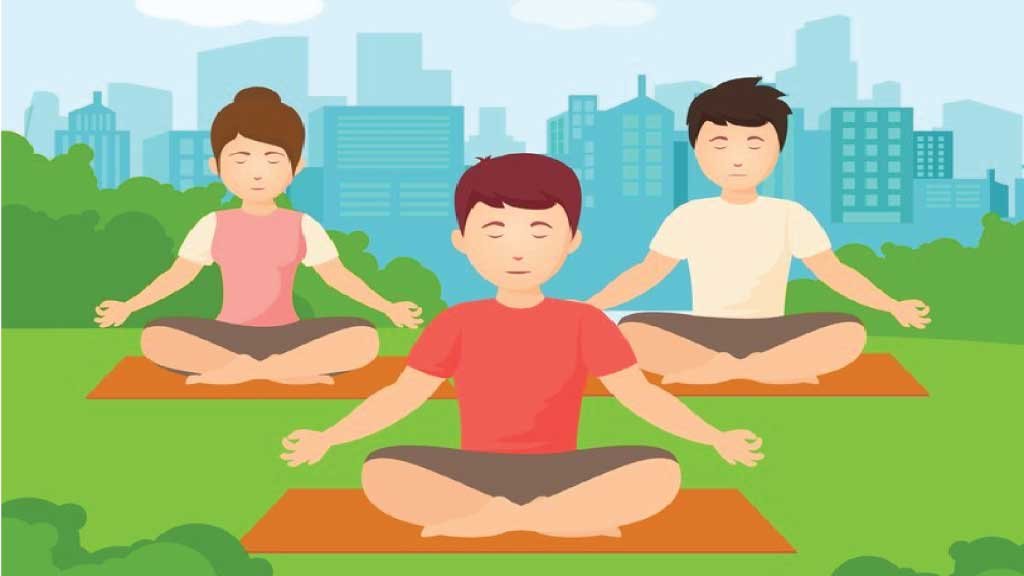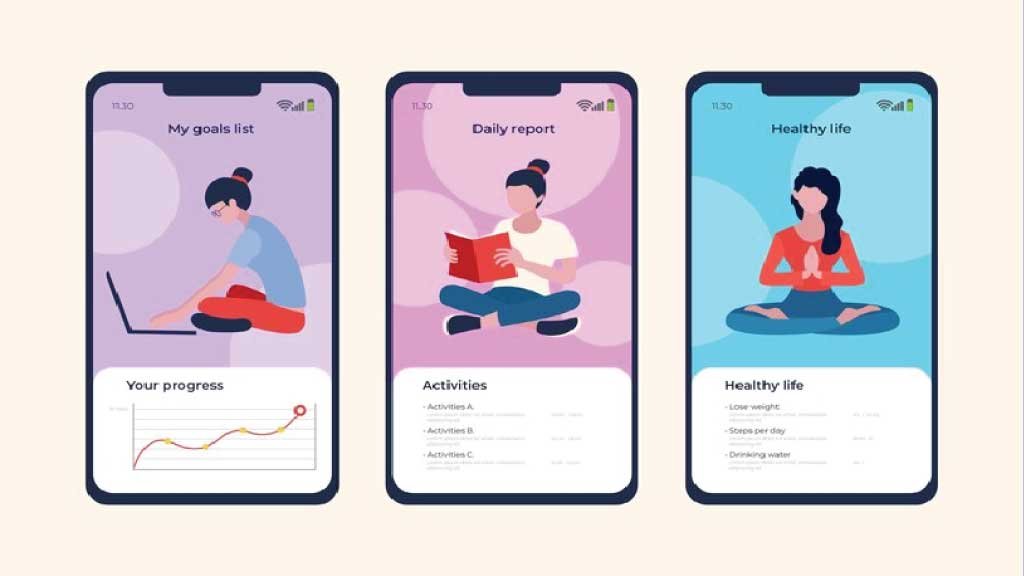The Beginner’s Guide: How Meditation and Mindfulness Can Transform Your Life” is likely a book or resource aimed at introducing newcomers to the practices of meditation and mindfulness and illustrating how these techniques can bring about positive transformations in one’s life.
Meditation involves various practices aimed at training attention and awareness to achieve mental clarity, emotional calmness, and a sense of well-being. Mindfulness, often associated with meditation, involves paying deliberate attention to the present moment without judgment. Both practices have gained popularity in recent years due to their potential benefits for mental health, stress reduction, and overall well-being.
In such a guide, readers might expect to find explanations of different meditation techniques, practical tips for incorporating mindfulness into daily life, scientific research supporting the benefits of these practices, and personal anecdotes or case studies illustrating their transformative effects. The guide may also include guidance on overcoming common obstacles encountered during meditation and mindfulness practice, such as wandering thoughts or difficulty maintaining focus.
Overall, The Beginner’s Guide: How Meditation and Mindfulness Can Transform Your Life likely serves as a comprehensive introduction to these practices, offering readers the tools and knowledge needed to embark on their own journey toward greater mental clarity, emotional resilience, and inner peace.
What are the scientific benefits of meditation and mindfulness
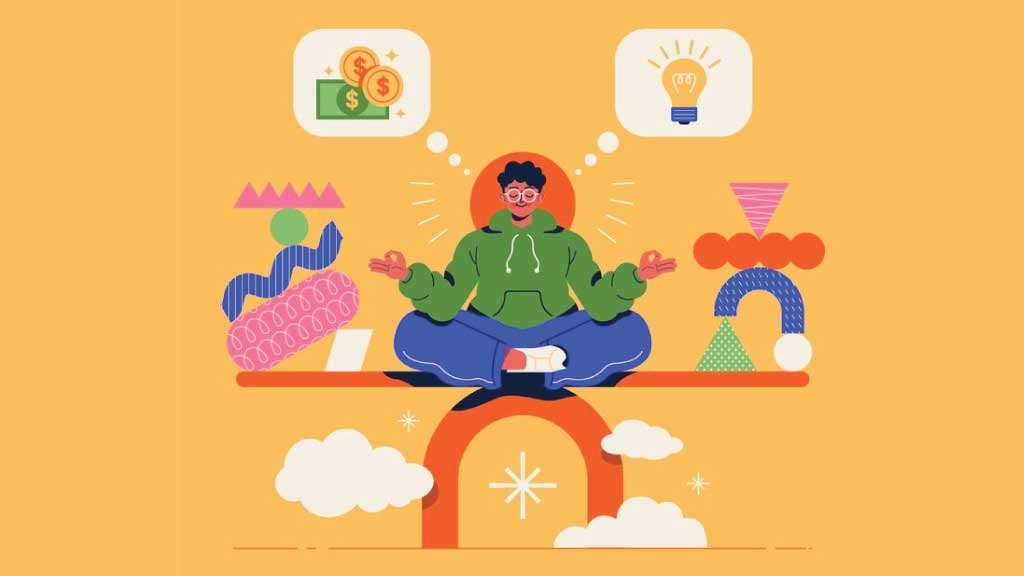
Meditation and mindfulness practices have been extensively studied, and numerous scientific studies have demonstrated a wide range of benefits across various aspects of mental and physical health. Some of the scientifically supported benefits of meditation and mindfulness include:
Stress Reduction:
Engaging in meditation and mindfulness practices offers a powerful antidote to the pressures of modern life, effectively reducing stress levels. These practices have been scientifically proven to lower levels of stress hormones like cortisol, leading to a notable decrease in perceived stress. As a result, individuals experience greater feelings of relaxation and tranquility, fostering a sense of calm amidst life’s challenges.
Improved Emotional Well-being:
Consistent practice of meditation and mindfulness cultivates a profound enhancement in emotional well-being. By honing emotional regulation skills, individuals can effectively manage symptoms of anxiety and depression. These practices promote a deeper sense of self-awareness and acceptance, fostering a positive mindset and resilient emotional health.
Enhanced Cognitive Function:
The benefits of meditation and mindfulness extend to cognitive function, with research indicating notable improvements in attention, concentration, and working memory. Additionally, these practices have shown promise in mitigating age-related cognitive decline, helping individuals maintain mental sharpness and cognitive agility as they age.
Better Sleep:
Mindfulness-based interventions have emerged as effective strategies for improving sleep quality and addressing insomnia symptoms. By promoting relaxation and reducing the impact of racing thoughts, individuals can achieve more restful sleep patterns. This leads to increased vitality, improved mood, and enhanced overall well-being.
Pain Management:
Mindfulness meditation offers a holistic approach to pain management, particularly in individuals coping with chronic pain conditions. By altering the perception of pain and enhancing pain tolerance, mindfulness practices empower individuals to effectively manage discomfort. This results in improved quality of life and greater physical and emotional well-being.
Increased Resilience:
Engaging in meditation and mindfulness fosters resilience by equipping individuals with effective coping mechanisms to navigate stress and adversity. By cultivating present-moment awareness and emotional regulation skills, these practices empower individuals to bounce back from challenges more effectively, promoting mental and emotional strength in the face of adversity.
Boosted Immune Function:
Emerging research suggests that meditation and mindfulness practices may positively influence immune function. By reducing stress and promoting relaxation, these practices may contribute to enhanced immune system function, potentially reducing the risk of illness and supporting overall health and well-being.
Lower Blood Pressure:
Mindfulness based interventions have demonstrated efficacy in reducing blood pressure levels. By promoting relaxation and stress reduction, these practices contribute to better cardiovascular health, lowering the risk of hypertension and associated complications, such as heart disease and stroke.
Improved Relationships:
Practicing mindfulness cultivates qualities such as empathy, compassion, and non reactivity, which are essential for fostering healthy interpersonal relationships. By deepening understanding and connection with others, mindfulness promotes effective communication, conflict resolution, and overall relationship satisfaction, leading to more fulfilling and harmonious interactions.
Enhanced Overall Well-being:
Regular engagement in meditation and mindfulness practices is associated with greater overall well-being and life satisfaction. By fostering a deeper sense of presence, contentment, and gratitude, these practices promote happiness and a sense of purpose and meaning in life, contributing to holistic well-being and fulfillment.
These are just some of the scientifically supported benefits of meditation and mindfulness. It’s important to note that individual experiences may vary, and the effectiveness of these practices can depend on factors such as the type of meditation practiced, the duration and consistency of practice, and individual differences in personality and physiology.
How can meditation and mindfulness help with stress and anxiety

Meditation and mindfulness serve as powerful allies in the battle against stress and anxiety by instilling a profound sense of tranquility, awareness, and clarity. These practices provide a sanctuary amidst life’s chaos, offering a refuge where individuals can anchor themselves in the present moment and gain perspective on their thoughts and emotions.
By cultivating mindfulness, individuals learn to observe their inner experiences without judgment, allowing them to respond to stressors with greater resilience and equanimity. Through regular practice, meditation and mindfulness empower individuals to cultivate a peaceful inner landscape, fostering emotional balance and well-being in the face of life’s challenges.
Stress Reduction:
Meditation and mindfulness techniques, such as deep breathing exercises or body scan meditations, activate the body’s relaxation response, which counteracts the stress response. Regular practice can help lower overall stress levels and promote a greater sense of relaxation. By incorporating these techniques into your daily routine, you can effectively manage stress and cultivate a calmer, more balanced state of mind.
Cultivating Awareness:
Mindfulness involves paying attention to the present moment without judgment. By cultivating awareness of your thoughts, feelings, and bodily sensations, you can become better at recognizing signs of stress and anxiety as they arise. This awareness allows you to respond to stressors more skillfully rather than reacting automatically. Through mindfulness practice, you develop the ability to observe your inner experiences with clarity and equanimity, fostering a deeper understanding of yourself and your surroundings.
Changing Relationship with Thoughts:
Meditation teaches you to observe your thoughts without getting caught up in them. This can be particularly helpful for managing anxiety, as it allows you to create distance from anxious thoughts and prevent them from spiraling out of control. Over time, you may become less identified with your anxious thoughts, reducing their impact on your well-being. By developing a more flexible and accepting relationship with your thoughts, you can cultivate a greater sense of peace and inner calm.
Emotional Regulation:
Mindfulness practices help develop emotional regulation skills, allowing you to respond to stressful situations with greater equanimity and resilience. By learning to acknowledge and accept difficult emotions without judgment, you can reduce their intensity and duration. Through regular mindfulness practice, you can cultivate a deeper sense of emotional balance and well-being, empowering you to navigate life’s challenges with greater ease and effectiveness.
Reducing Rumination:
Rumination, or repetitive negative thinking, is common in anxiety. Meditation and mindfulness can break the cycle of rumination by redirecting your focus to the present moment, reducing the tendency to dwell on past events or worry about the future. By practicing mindfulness, you learn to observe your thoughts without getting entangled in them, fostering a more balanced perspective and reducing the grip of anxious rumination on your mind.
Enhancing Self-Compassion:
Mindfulness fosters a sense of self-compassion and acceptance, which can be especially beneficial for managing anxiety. By treating yourself with kindness and understanding, you can reduce self-criticism and perfectionism, which are often underlying factors in anxiety. Through mindfulness practices, you cultivate a non-judgmental awareness of your thoughts and emotions, allowing you to respond to yourself with greater kindness and compassion.
Improving Sleep Quality:
Stress and anxiety can interfere with sleep, leading to a vicious cycle of sleep deprivation and increased anxiety. Mindfulness-based interventions have been shown to improve sleep quality by promoting relaxation and reducing racing thoughts before bedtime. By incorporating mindfulness practices into your bedtime routine, such as deep breathing exercises or body scan meditations, you can create a more conducive environment for restful sleep and break the cycle of sleep disturbances associated with anxiety.
Promoting Mindful Coping Strategies:
Through meditation and mindfulness, you can develop a toolkit of coping strategies for managing stress and anxiety, such as mindfulness-based stress reduction (MBSR) techniques, progressive muscle relaxation, or loving-kindness meditation. By practicing these techniques regularly, you build resilience and cultivate a greater sense of calm and equanimity in the face of life’s challenges. Mindfulness empowers you to respond to stressors with greater awareness and skill, promoting adaptive coping strategies that support your overall well-being.
By incorporating meditation and mindfulness into your daily routine, you can develop greater resilience to stress and anxiety, leading to improved overall well-being and a greater sense of inner peace.
How can I get started with meditation and mindfulness
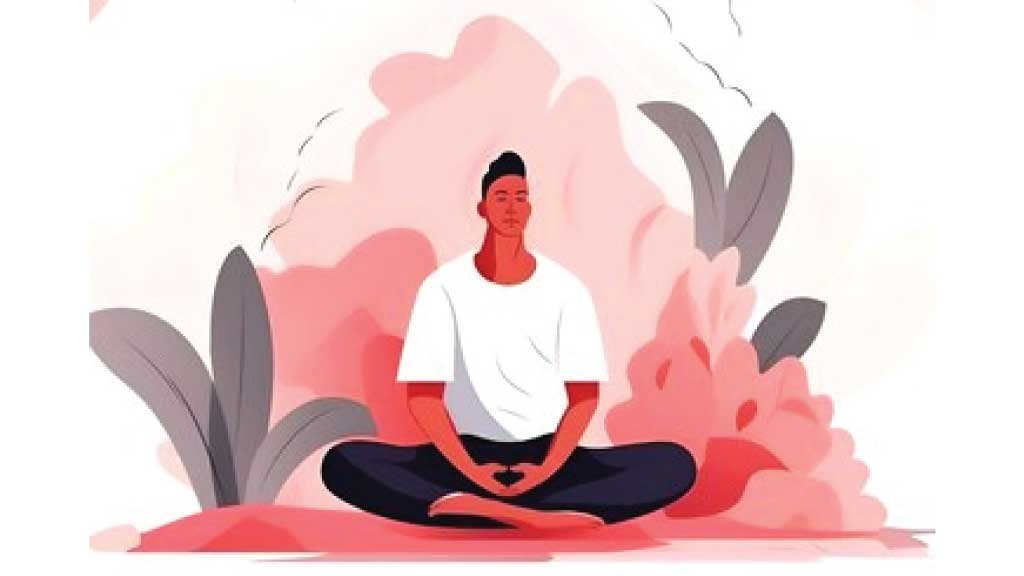
Getting started with meditation and mindfulness doesn’t have to be complicated. Here’s a simple guide to help you begin your practice:
Set Aside Time:
Begin by setting aside a few minutes each day dedicated to meditation and mindfulness practice. Even a brief period of 5-10 minutes can yield significant benefits. Choose a consistent time that aligns with your schedule, whether it’s early in the morning to start your day on a mindful note or before bedtime to unwind and relax.
Find a Quiet Space:
Select a quiet and tranquil environment where you can practice without disturbances. Whether it’s a designated corner in your home, a cushion on the floor, or a cozy chair, ensure it’s free from distractions. Consider using headphones to block out any external noise and create a serene atmosphere conducive to deepening your practice.
Get Comfortable:
Assume a comfortable posture, whether sitting or lying down, with your back straight yet relaxed. Find a position that allows you to feel supported and at ease. Close your eyes gently or maintain a soft gaze, whichever feels most comfortable and conducive to a focused and relaxed state of mind.
Focus on Your Breath:
Direct your attention to the natural rhythm of your breath. Notice the sensations as you inhale and exhale, feeling the rise and fall of your chest or the gentle flow of air through your nostrils. Allow your breath to be your anchor, grounding you in the present moment and guiding your awareness away from distractions.
Stay Present:
While focusing on your breath, acknowledge that your mind may wander to other thoughts or sensations. This is a natural part of the process. When you notice your mind drifting, gently guide your attention back to your breath without judgment or frustration. Embrace the present moment, accepting whatever arises with openness and curiosity.
Practice Non-Judgment:
In meditation and mindfulness, the aim isn’t to stop thoughts but to observe them without attachment. Approach your practice with kindness and patience, releasing any expectations or judgments. Cultivate a compassionate attitude towards yourself and your experiences, allowing thoughts to come and go without getting entangled in them.
Start Small:
If sitting still and focusing on your breath feels challenging initially, start with shorter meditation sessions and gradually extend the duration as you build comfort and confidence. Consistency is key, so prioritize regular practice even if it’s just for a few minutes each day. Gradually increase the length of your sessions as you feel more at ease with the practice.
Experiment with Different Techniques:
Explore a variety of meditation and mindfulness techniques to discover what resonates best with you. Whether it’s guided meditations, body scan exercises, or loving-kindness practices, be open to trying new approaches. Each technique offers unique benefits, so experiment with different methods to find those that suit your preferences and needs. Enjoy the journey of exploration and self-discovery as you deepen your mindfulness practice.
Remember that meditation and mindfulness are skills that develop with practice, so be patient with yourself as you embark on this journey. With time and dedication, you can cultivate greater awareness, presence, and well-being in your life.
What are some different types of meditation techniques
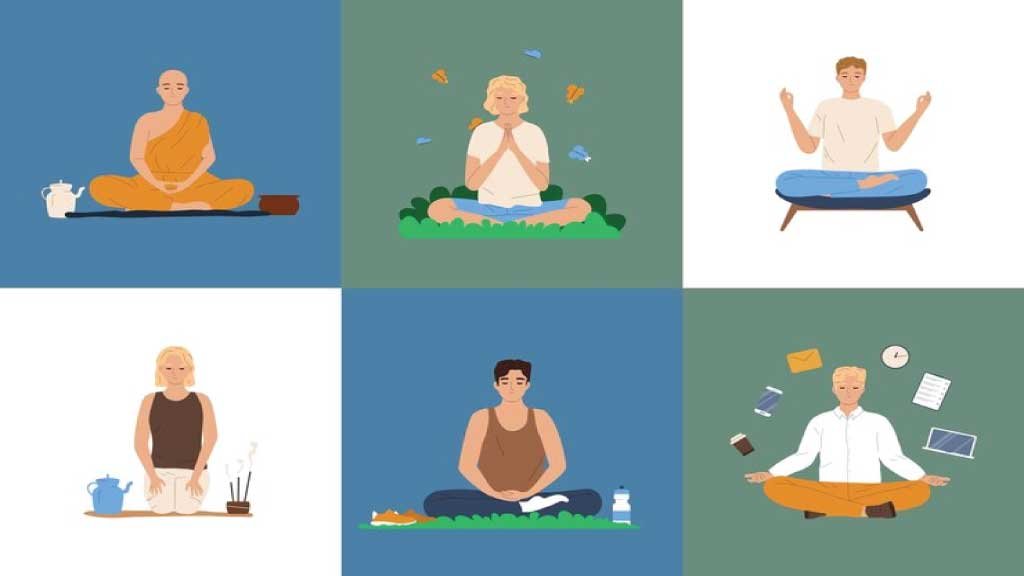
There are numerous types of meditation techniques, each with its own focus and approach. Here are some of the most common ones:
Mindfulness Meditation:
Mindfulness meditation is a practice that encourages individuals to focus on the present moment without judgment. Practitioners observe thoughts, sensations, and emotions as they arise and pass, cultivating a heightened sense of awareness and acceptance of their inner experiences. By developing mindfulness, individuals can navigate life’s challenges with greater clarity and equanimity, fostering inner peace and resilience amidst the ups and downs of daily life.
Breath Awareness Meditation:
Breath awareness meditation involves directing attention to the breath as it flows in and out of the body. This technique serves as an anchor for the mind, allowing practitioners to remain grounded in the present moment. By tuning into the rhythmic pattern of the breath, individuals cultivate a sense of relaxation, inner calm, and heightened concentration, fostering a deeper connection with their inner selves and the world around them.
Loving-Kindness Meditation (Metta):
Loving-kindness meditation, also known as Metta meditation, focuses on cultivating feelings of compassion, kindness, and goodwill towards oneself and others. Practitioners repeat phrases or affirmations directed towards themselves, loved ones, and even difficult individuals or situations. Through this practice, individuals nurture a sense of empathy and understanding, fostering deeper connections and promoting emotional well-being. By radiating love and kindness outwards, practitioners contribute to a more compassionate and harmonious world.
Body Scan Meditation:
Body scan meditation involves systematically scanning the body from head to toe, paying close attention to physical sensations and areas of tension or discomfort. This practice promotes relaxation and body awareness, allowing individuals to release pent-up stress and tension held within the body. By cultivating mindfulness of bodily sensations, practitioners develop a greater sense of self-care and well-being, fostering a harmonious relationship between mind and body.
Visualization Meditation:
Visualization meditation invites individuals to create mental images or scenes that evoke feelings of peace, relaxation, or positivity. Practitioners may visualize themselves in a serene natural setting, such as a tranquil beach or lush forest, or imagine their goals and aspirations coming to fruition. Through visualization, individuals harness the power of imagination to manifest their desires and cultivate a positive mindset. This practice enhances focus, motivation, and resilience, empowering individuals to overcome obstacles and manifest their highest potential.
Mantra Meditation:
Mantra meditation is a technique that involves the repetition of a word, phrase, or sound (mantra) silently or aloud to focus the mind and induce a meditative state. The rhythmic repetition of the mantra helps quiet the mind and promote concentration, allowing practitioners to transcend ordinary thinking and access deeper states of awareness. By immersing oneself in the vibrations of the mantra, individuals can cultivate inner peace, clarity, and spiritual awakening, harnessing the transformative power of sound to quiet the chatter of the mind and awaken the essence of being.
Walking Meditation:
Walking meditation is a contemplative practice that involves walking slowly and mindfully, paying deliberate attention to each step and the sensations of movement in the body. Whether practiced indoors or outdoors, walking meditation encourages practitioners to connect deeply with the present moment, grounding themselves in the rhythm of their footsteps and the sensation of their body in motion. This meditative form of movement promotes mindfulness in action, fostering a profound sense of presence, calm, and embodied awareness as individuals walk with intention and purpose.
Transcendental Meditation (TM):
Transcendental Meditation (TM) is a widely practiced technique that involves silently repeating a specific mantra given by a certified TM teacher. Practitioners meditate for 15-20 minutes twice daily while sitting comfortably with closed eyes, allowing the mantra to effortlessly guide them into deeper states of consciousness. This effortless transcending of thought enables individuals to access the silent reservoir of creativity, intelligence, and bliss within, promoting holistic well-being and self-realization.
By practicing TM regularly, individuals can experience profound relaxation, heightened clarity, and expanded awareness, unlocking their full potential and experiencing the boundless depths of inner silence and inner peace.
Zen Meditation (Zazen):
Zen meditation, also known as Zazen, is a foundational practice in Zen Buddhism characterized by seated meditation. Practitioners assume a stable and upright posture, typically sitting cross-legged on a cushion or chair, and focus on their breath as they observe thoughts and sensations without attachment.
This practice cultivates mindfulness, equanimity, and insight, allowing practitioners to embrace the present moment with open awareness and nonjudgmental acceptance. Through sustained practice of Zazen, individuals deepen their understanding of the nature of mind and reality, awakening to the inherent wisdom and compassion that resides within.
Guided Meditation:
Guided meditation is a form of meditation in which individuals follow verbal instructions provided by a teacher or recorded audio to lead them through a meditation practice. This can be particularly helpful for beginners or those who prefer external guidance to facilitate relaxation, concentration, or self-exploration.
Guided meditations often incorporate imagery, visualization, or mindfulness techniques to help individuals relax, release stress, and cultivate inner peace. By following the guidance of a skilled instructor, individuals can deepen their meditation practice, explore new techniques, and cultivate greater self-awareness and insight.
These are just a few examples of the many meditation techniques available. Each technique offers unique benefits, so feel free to explore different practices and find what resonates with you.
How long does it take to see the benefits of meditation and mindfulness
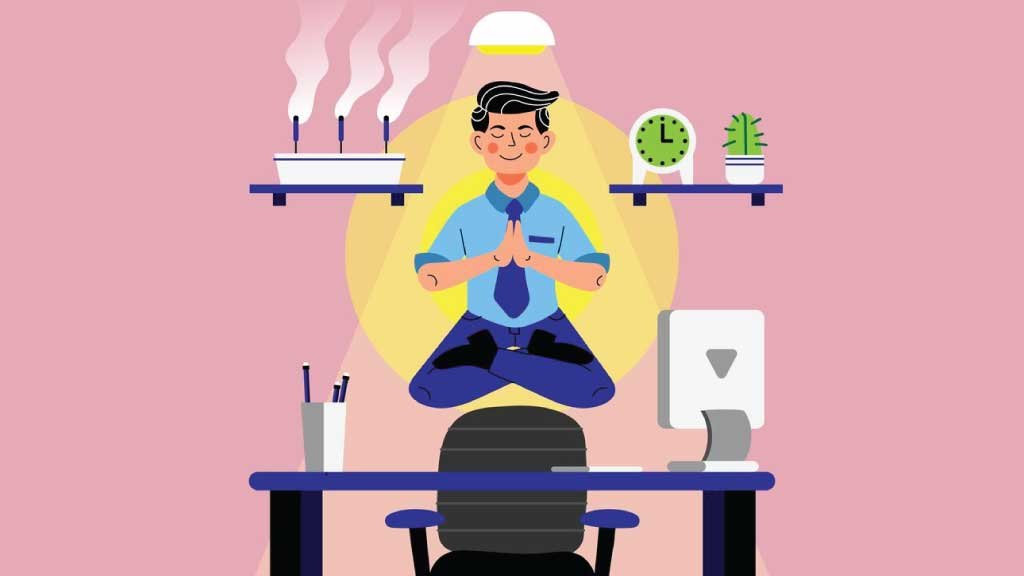
The timeline for experiencing the benefits of meditation and mindfulness can vary from person to person and depends on factors such as individual temperament, consistency of practice, and the specific goals of the practice. While some people may notice immediate benefits after just a few sessions, for others, it may take several weeks or even months of consistent practice to experience significant changes.
Here are some general guidelines for when you might start noticing the benefits of meditation and mindfulness:
FAQs:
What are the benefits of meditation and mindfulness?
How can I start practicing meditation and mindfulness?
Can meditation and mindfulness help with anxiety?
How long does it take to see the benefits of meditation and mindfulness?
Are there any risks or side effects to practicing meditation and mindfulness?
Images ‘Designed by Freepik‘




